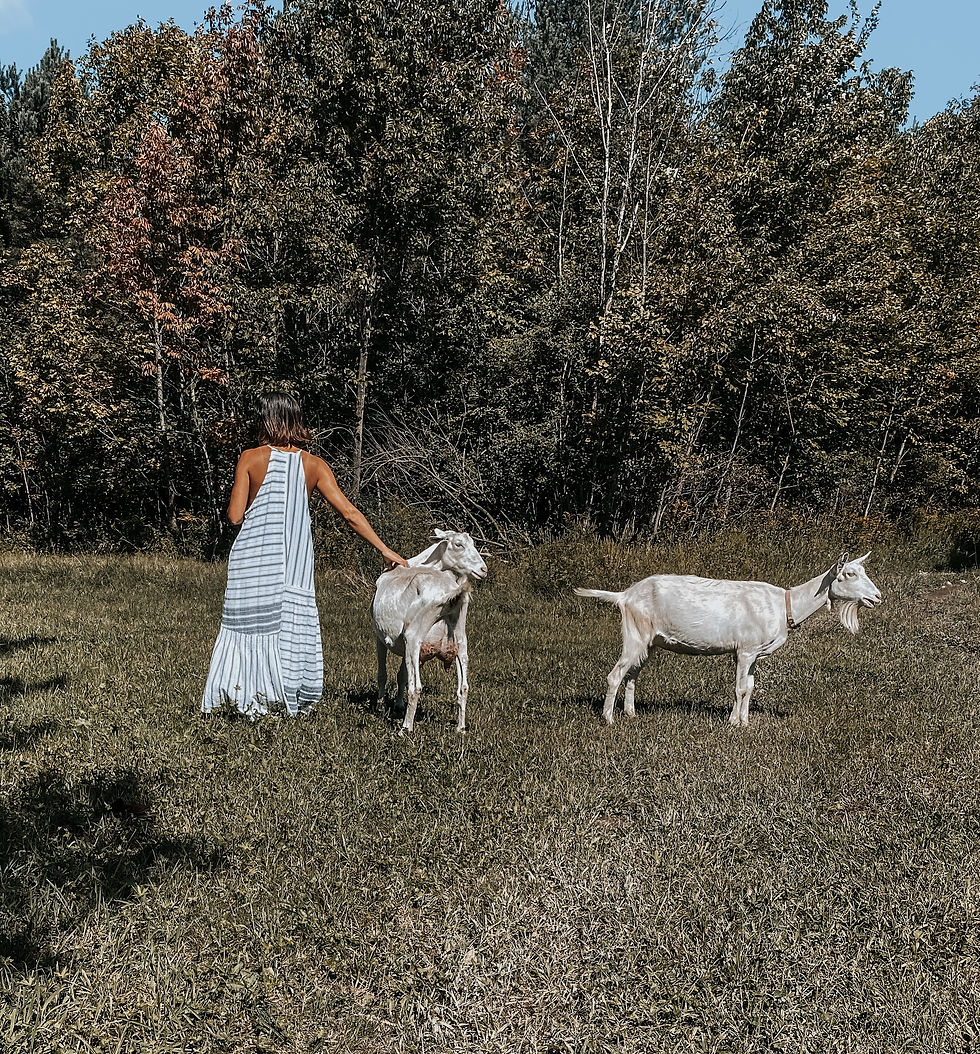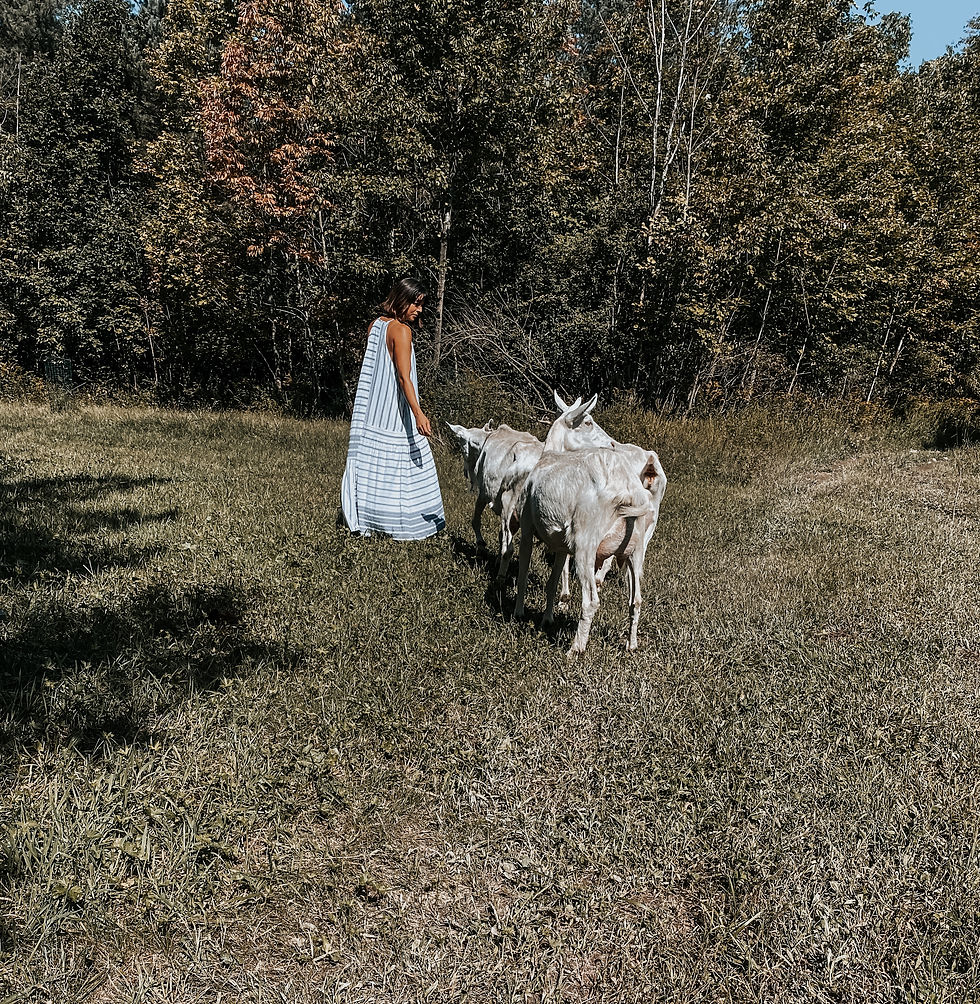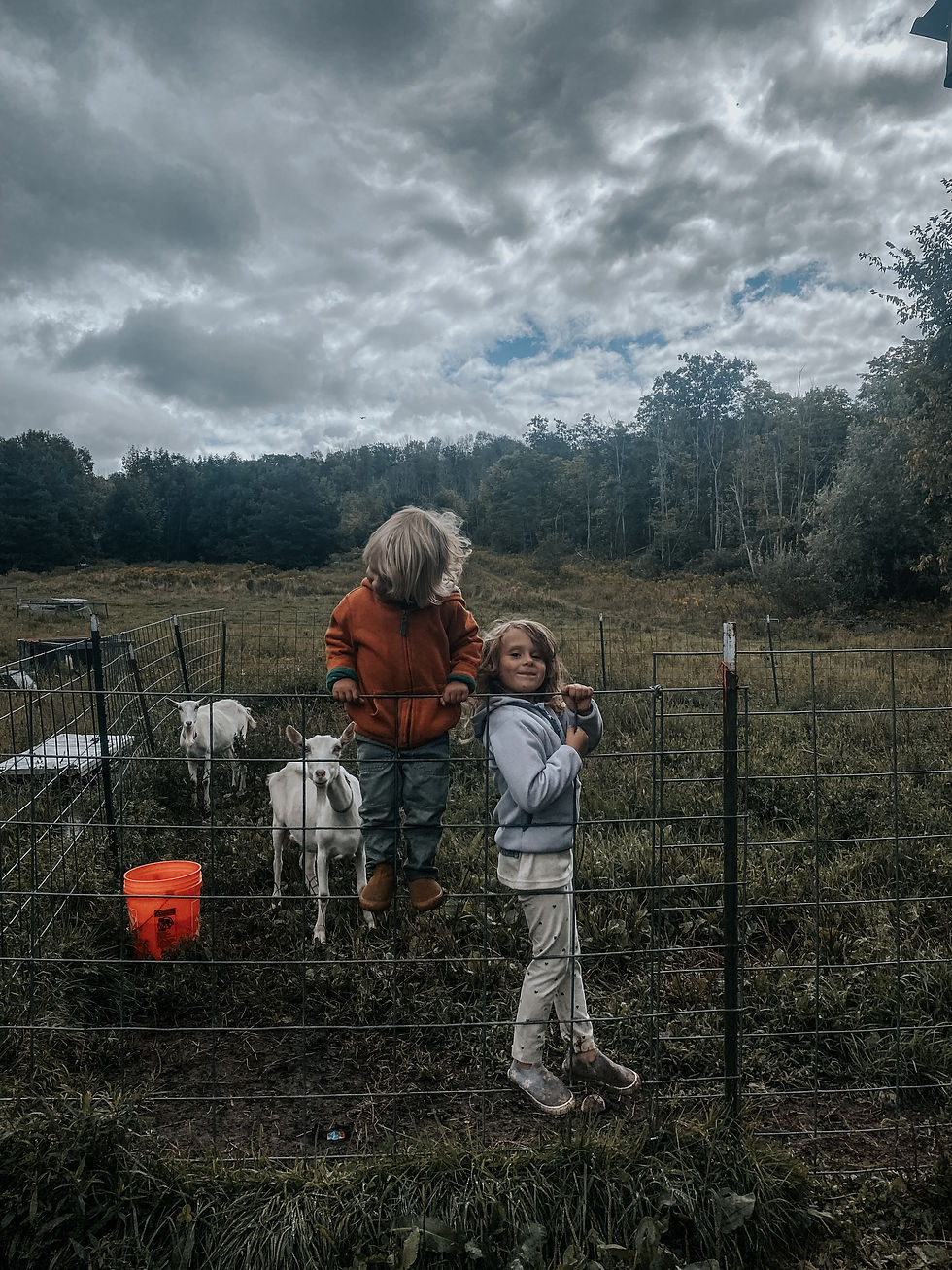
You have decided to take the plunge and buy a dairy animal and now you have to decide what animal you will devote your heart and soul to. It is no small decision but yes, it is very exciting. You want to get it right, but remember all things do change and you are allowed to make mistakes along this journey, you inevitably will. I am fully committed to raising dairy goats, Saanens, in particular. After years of already diving in, I still can be star struck by milking cows at times. You want what you don't have? I wanted to address what it is I love about raising my goat herd and rule out why a dairy cow just doesn't suit us.
I promise you, I absolutely love being the caretaker, the milkmaid, to my dairy goats and goat herd. Here is my list that confirms it is best for me, my family and our farm. It is by no means a complete list so please pitch in your thoughts. My hope is it offers you some guidance if and when it comes time to jump in or switch things up over in your neck of the woods in raising a dairy animal. Perhaps it simply gives you respect back to the source of your milk you have been sippin’ on.
Goats Are More Sustainable

I am not staking this claim for everyone but in general, goats need less space to be happy and healthy than, let's say, a milking cow. On our farm, our goats share pasture with hogs and broiler chickens. There can be close to 150 plus animals taking up space in our open field and yet, we are extremely sustainable. The hogs are rotated often, the broiler chickens are moved daily. Our goats have a small pasture attached to both our doe and buck barns since we keep them separate. Our goats also have another large enclosed pasture. I often prefer to let our milking does freely roam around our wide open field shared with the hogs and broilers during the summer months. As the hogs and broiler chickens mow down all of the grass, the goats are browsers and love all of the shrubbery and leaves from trees. These three animals work quite harmoniously together in the space we have available. The sad reality is that one milking cow would need the space that takes up all of our animals in the field currently. This is our biggest guiding decision to choose goats.
Less Milk Per Goat

This could sound like a downfall in raising dairy goats, but in my opinion, I appreciate the amount of milk that comes from one goat versus a cow. I was able to slowly step in with one milking goat which helped to not feel overwhelmed. It is easy to add another milking goat into the mix if there is a need for more milk.
Not All Eggs In One Basket
This may not mean anything if you are comparing one dairy goat to one dairy cow but… it is much easier to have two dairy goats than two dairy cows. We have slowly built our farm to have three dairy goats as our demand between our family size and our goat milk soap business grew. It is a lot to manage in my opinion but I love that it doesn’t put too much stress on any one animal and we are not dependent on any one animal. God forbid a goat were to get mastitis or even worse to need to put one down for some reason, we still have another goat going strong with rich milk. I am not claiming that you can’t have multiple dairy cows, I am saying it is much easier to milk a few goats than a couple of cows.
Never Without Milk

In raising milking goats it is important to give a pregnant goat 60 days off from milking before she gives birth and ends up with fresh milk yet again. With that said, that is 60 days of raising a dairy animal and having no milk, needing to outsource. Honestly, there is nothing wrong with that and it can be quite nice to take a break but, do you want to know my little brilliant secret? I don’t find it necessary to breed and ask for freshened milk from my goats every single year. I have slowly built my herd to three milking goats. Now, I can breed one or two goats a year and one or two the following year making it so I am never without fresh milk year round including when pregnant goats are taking their much deserved break from providing milk. I never have to work any one goat too hard.There is always at least one goat in milk while the others are pregnant and dried off each late winter. Wahlah. That is just magic.
Cost Effective
A simple fact, goats cost less than cows. Do you have room for your goats to forage in the warmer months? Are you willing to get savvy and buy bulk for herbal wormers/supplements/ organic grain source/ hay. P.S. I mix up our own herbal wormer. Last but not least, we have virtually no vet bill. This is all dependent on your choices but you can keep vet costs at a bare minimum with goats if you choose.
Be Your Own Vet

Following up from the last one, and this could be controversial but, you can be your own vet when raising dairy goats. It will most likely take experience before you can confidently choose this route but this is one beautiful thing about raising smaller livestock. I am able to do everything that my goats need even helping through goat pregnancy, labor, birthing, and postpartum care. I have used a vet very infrequently (ex: emergency goat care, disbudding.) Moving forward, I wonder if I will ever need to call a vet over here ever again. Never say never but most definitely only on a rare occassion will a vet hear from me. I have really learned to make the hard decisions, do the work to learn for myself, and advocate for my animals and there are the invaluable resources I have found to connect and communicate with others to form my own opinions. I would recommend finding your goat people community locally and online, Facebook groups can be great for countless questions and issues that may arise. If you take on this responsibility,
make sure to educate yourself and keep learning along the way.
More Flexibility
Speaking to flexibility with daily milking sessions is comical as we all are aware a milkmaid is bound to daily milking but hear me out. When milking becomes your daily rhythm you really do find there is margin or room to make milking goats work for you and your family without compromising their health and well-being. We are easily able to taper twice a day milking sessions to once a day once our milking goats have been newly freshened and their babies weaned. This may be the most sensitive time where you want to ensure you are keeping to a more timely day to day rhythm but as your doe’s milk settles you will find that shifting in milking time is more than OK. This is the beauty of a family farm herd and not an industrialized system that needs to drip every last drop out of an animal. I may sacrifice a little milk here or there to convenience our day to day. I get to have my cake/milk and eat it too/ get out of the house and go do something I have planned. It is also pretty easy to get that supply up again anyway.
Ease Around Children

Our herd is currently disbudded but generally speaking, goats are friendly creatures. In our case, our goats put up with so much and still love us. They are familiar with hollering, dogs running wild, children roaming barefoot and they still show us nothing but affection as they walk alongside us or are bound to the milk stand enjoying their grain ration. It is so refreshing to have one less thing to worry about. I often will be doing farm chores with my children around me and the goats around us. There is NOTHING I really have to be too concerned about. This isn’t the case for every goat. Make sure the goat you purchase has a good demeanor or raise your own goats from goat kids so you can instill good habits and give them all the affection they could ask for. Goats are extremely easy to handle.
More Digestible Milk
Goat Milk not only contains less lactose, but its fat content is much simpler for our digestion than cow milk. Compared to cow milk, soy milk, or nut milks, goat milk has more protein that is more digestible/readily available to the body. I’ll just throw in that goat milk is an excellent source of protein, calcium, potassium, phosphorus, magnesium, and vitamin A. It is a superfood that is pretty special to source from your backyard.
You will still at times catch me daydreaming about a cow in my pasture, guilty. I have eyes for homemade cream and butter. Don’t get me wrong, goat’s do produce cream but their milk is naturally homogenized. The milk fat molecules won’t float up to the top the way you will see in cow milk. There is a product that will separate the goat milk from the cream but it costs a pretty penny, I will let you know if and when I go that route some day. This is the clencher that makes you re-think your chioces a little but all in all, I love my dairy goats and I wouldn’t have it any other way.
Are you sold yet?
What have I missed?
コメント